Written by Lana Turnbull, BSc (Hons) Animal Biology, SWF Research Intern 2015
Within the science research community it has long been known that giving an animal a human quality (a.k.a anthropomorphism) is a big no-no as it makes for bad science. Anthropomorphism can come in many forms such as emotions, behaviours and in the case of this blog post, names.
Here at Sea Watch we have seen a ‘few’ bottlenose dolphins pass through Cardigan Bay over the past two decades, well over 200 to be more precise and every one of these has been assigned a number (i.e. 025-046W) so we can catalogue their future movements and behaviours. However in some cases, where we see individuals on a regular basis within the bay they have acquired themselves a local name, for example Alfredo, Top Notch and even Gandalf!
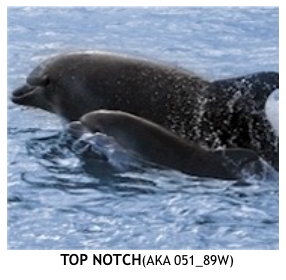 So why do we name the dolphins when the science community highly condemns it?
So why do we name the dolphins when the science community highly condemns it?
Answering this question involves going off topic slightly (in terms of marine mammals). Earlier this year the death of Cecil the Lion sent the world into uproar. The man responsible for the lion’s downfall, Walter Palmer, was recently quoted as saying ‘If I had known this lion had a name…I wouldn’t have taken it’. He suggested that not the conservation status of the animal would have stopped him, but something as simple as a name would have. His statement has since raised several questions over the importance of a name in the use of conservation. It got me thinking – is the use of a name more than identifying an individual or can it be used as a different approach to conservation?
For research purposes and for keeping our dolphin catalogue up to date, here at SWF the dolphins will first and foremost always be given a number, but if they become regularly sighted on our surveys then they may adopt a name.
Like many other marine research organisations, one of SWF’s aims is to encourage the public to get involved with the marine environment and increase their awareness. However to do this is sometimes harder than it sounds, especially when you’re telling them that dolphin 025_046W was spotted just down the bay. On the other hand when you tell them that Gandalf was seen leaping out of the water in the south of the bay people seem immediately more interested.
With a name such as 025_046W, it’s just a series of characters put together, whereas with a name such as Bond, it creates a character and with a character comes a story. Research has shown that we, as humans, have long been captivated by those who have things in common with us, and this can easily lead to compassion and understanding. This can quickly result in people wanting to become more involved with the conservation of a species.
A name can evoke empathy in a person to the point where they want to help and contribute towards the problem which ultimately results in increased efforts which leads to the protection and conservation of a species.
At the end of the day, with or without a name, a dolphin is a dolphin, and nothing will change that. However the addition of a name we can possibly change perceptions and increase public involvement with our research. So as Shakespeare put it so simply, what’s in a name? More than an identity, apparently.
Whilst on the topic of names, we are currently running a competition where you can have the chance to name the calf of one of our regulars, Berry. The name will be used in our catalogues and in social media to monitor the calf’s behaviour in the future. Entry is only £1 and you can enter as many times as you like – however be quick as the closing date is the end of September!
Links
http://www.bbc.com/news/world-us-canada-34188768
http://link.springer.com/article/10.1007/s10531-012-0274-6#page-1

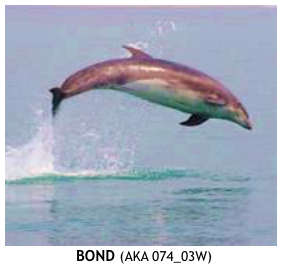
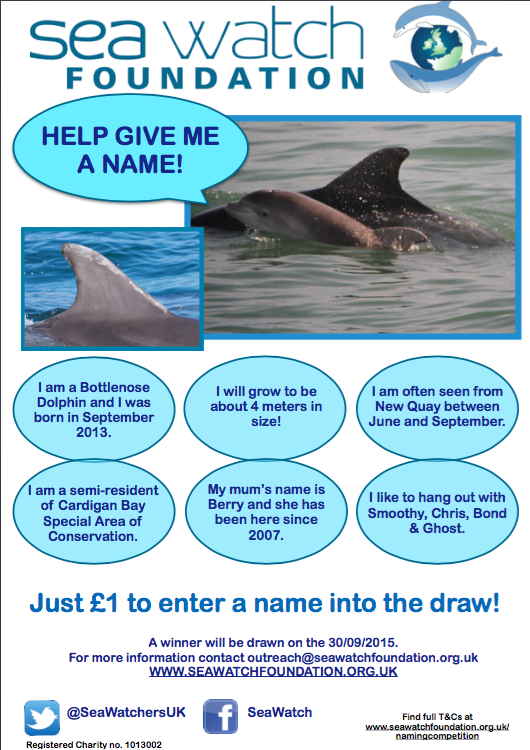
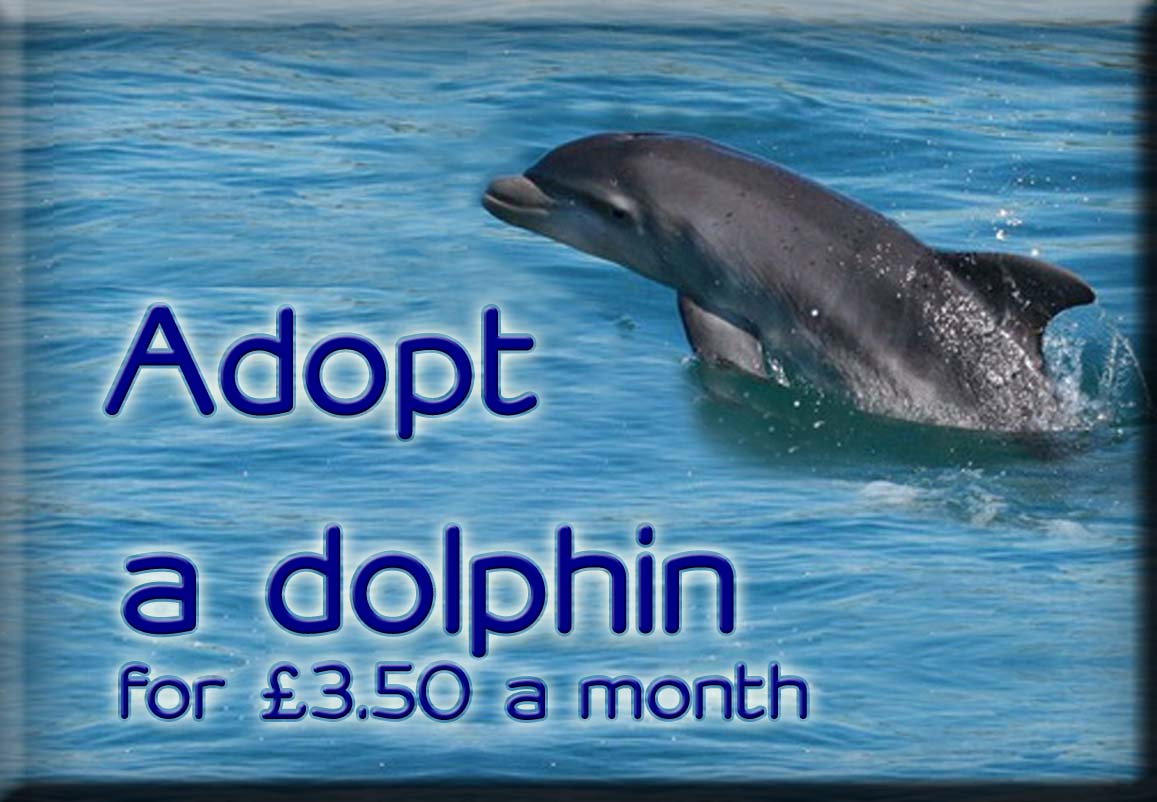
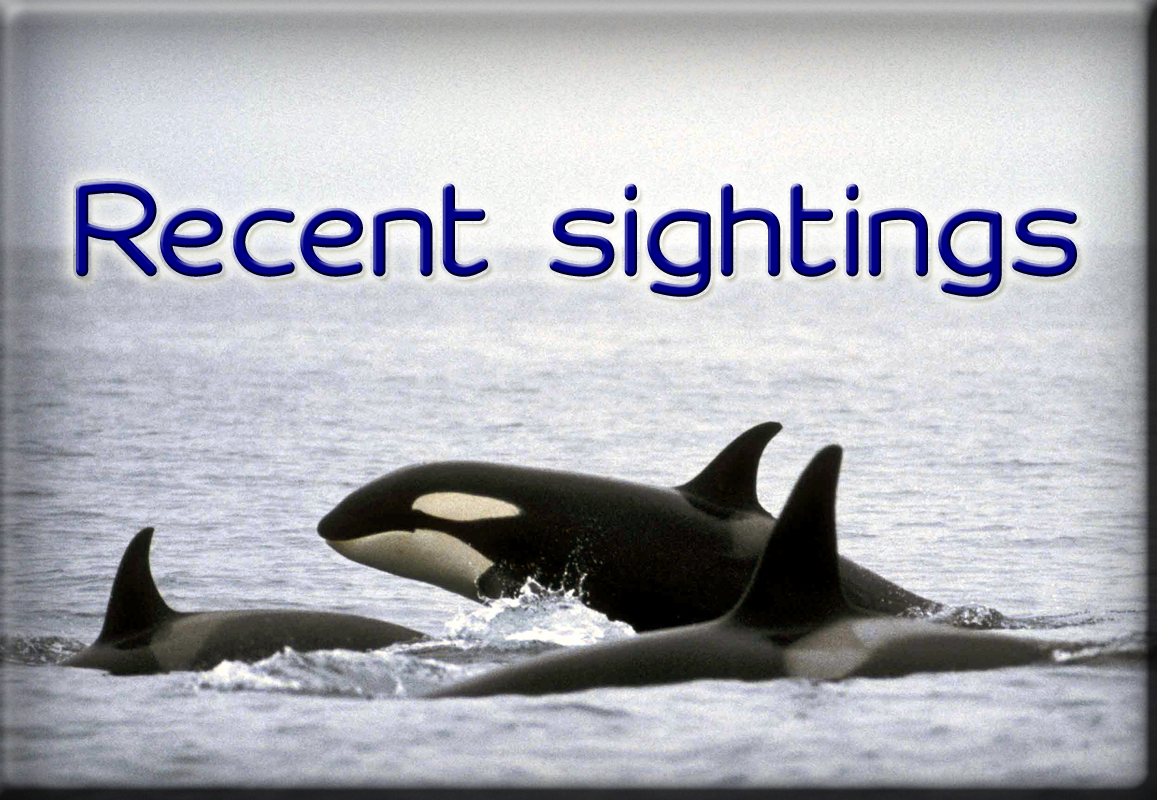






















Pingback: Naming Game…. | My Blog